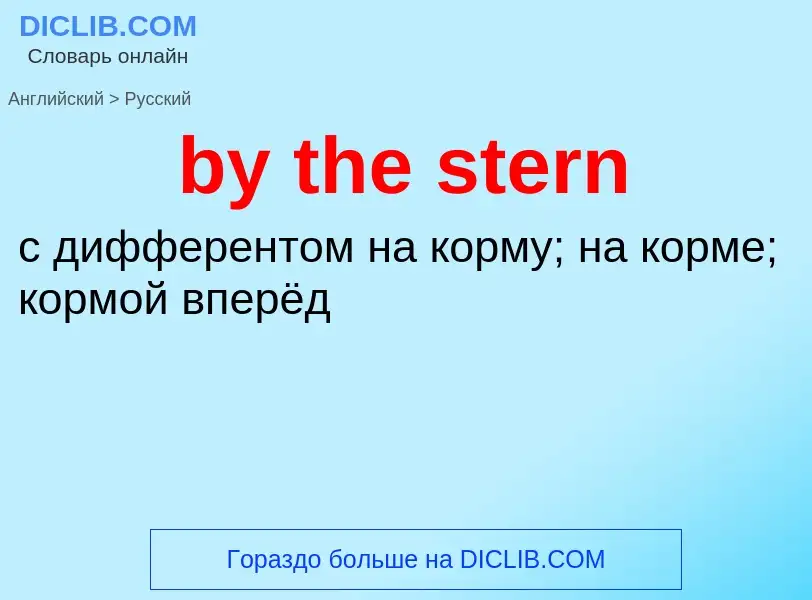Μετάφραση και ανάλυση λέξεων από την τεχνητή νοημοσύνη ChatGPT
Σε αυτήν τη σελίδα μπορείτε να λάβετε μια λεπτομερή ανάλυση μιας λέξης ή μιας φράσης, η οποία δημιουργήθηκε χρησιμοποιώντας το ChatGPT, την καλύτερη τεχνολογία τεχνητής νοημοσύνης μέχρι σήμερα:
- πώς χρησιμοποιείται η λέξη
- συχνότητα χρήσης
- χρησιμοποιείται πιο συχνά στον προφορικό ή γραπτό λόγο
- επιλογές μετάφρασης λέξεων
- παραδείγματα χρήσης (πολλές φράσεις με μετάφραση)
- ετυμολογία
by the stern - translation to ρωσικά
общая лексика
хвостовой шпангоут
Ορισμός
Βικιπαίδεια
The Stern Review on the Economics of Climate Change is a 700-page report released for the Government of the United Kingdom on 30 October 2006 by economist Nicholas Stern, chair of the Grantham Research Institute on Climate Change and the Environment at the London School of Economics (LSE) and also chair of the Centre for Climate Change Economics and Policy (CCCEP) at Leeds University and LSE. The report discusses the effect of global warming on the world economy. Although not the first economic report on climate change, it is significant as the largest and most widely known and discussed report of its kind.
The Review states that climate change is the greatest and widest-ranging market failure ever seen, presenting a unique challenge for economics. The Review provides prescriptions including environmental taxes to minimise the economic and social disruptions. The Stern Review's main conclusion is that the benefits of strong, early action on climate change far outweigh the costs of not acting. The Review points to the potential impacts of climate change on water resources, food production, health, and the environment. According to the Review, without action, the overall costs of climate change will be equivalent to losing at least 5% of global gross domestic product (GDP) each year, now and forever. Including a wider range of risks and impacts could increase this to 20% of GDP or more, also indefinitely. Stern believes that 5–6 degrees of temperature increase is "a real possibility".
The Review proposes that one percent of global GDP per annum is required to be invested to avoid the worst effects of climate change. In June 2008, Stern increased the estimate for the annual cost of achieving stabilisation between 500 and 550 ppm CO2e to 2% of GDP to account for faster than expected climate change.
There has been a mixed reaction to the Stern Review from economists. Several economists have been critical of the Review, for example, a paper by Byatt et al. (2006) describes the Review as "deeply flawed". Some economists (such as Brad DeLong and John Quiggin) have supported the Review. Others have criticised aspects of Review's analysis, but argued that some of its conclusions might still be justified based on other grounds, e.g., see papers by Martin Weitzman (2007) and Dieter Helm (2008).




![chine]]s of a Costanzi stern on ''Queen Mary 2'' chine]]s of a Costanzi stern on ''Queen Mary 2''](https://commons.wikimedia.org/wiki/Special:FilePath/Queen Mary 2 - geograph.org.uk - 477372.jpg?width=200)
![SS ''Independence'']] SS ''Independence'']]](https://commons.wikimedia.org/wiki/Special:FilePath/Ss Constitution1953.jpg?width=200)
![2}}, by [[Jean Bérain the Elder]] 2}}, by [[Jean Bérain the Elder]]](https://commons.wikimedia.org/wiki/Special:FilePath/Poupe-soleil-royal-berain.jpg?width=200)



